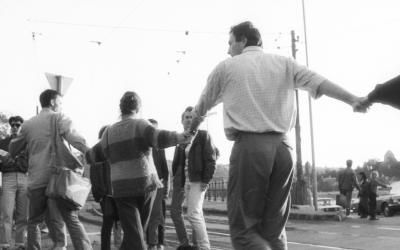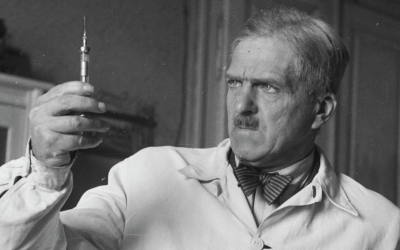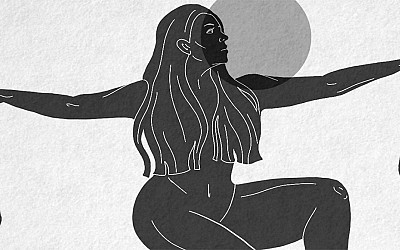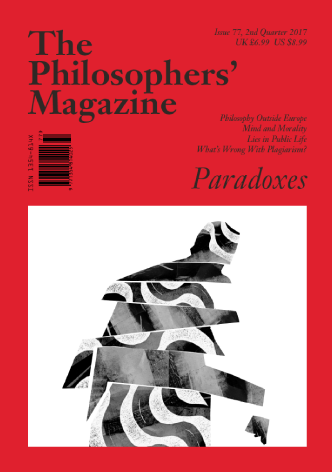Essays
Latest | Popular
-
Susanna Berger on imagery as a tool of philosophical thought and learning.
-
In another entry in our introductory series, Steven Campbell-Harris finds the self tantalisingly out of reach.
-
Evan Selinger on the risks and virtues of David Chalmers's deep dive into virtual reality.
-
Jonathan Matheson explores the tension between intellectual autonomy and love of truth.
-
Jeremy Davis dissects the Apple TV+ show Severance.
-
Marilynn Johnson on bodies, shame and adornment.
-
Mike Coxhead and James Chamberlain on the transformative potential of philosophical conversations in prison.
-
Clare Moriarty evangelises for Flann O'Brien's fantastical novel.
-
In the latest in a series for young people, Steven Campbell-Harris looks at a modern taboo.
-
Emily Thomas on the power of exploring unknown spaces
-
Marianne LeNabat takes issue with the Supreme Court’s decision to overturn Roe v. Wade.
-
Russell Blackford warns against unthinking, authoritarian tribalism in our responses to war.
-
Wendy Grossman on Wordle, new owners and the genesis of a conspiracy theory.
-
Brian Treanor argues for the importance of art, literature, poetry and philosophy even in the face of a burning world.
-
Sturla Haugsgjerd urges drug policy reform in an open letter to Norway’s Prime Minister.
-
In the fitth part of a series for young people, Steven Campbell-Harris looks at how words get their meaning.
-
Jamie Watson on the complexities of reviewing and weighing expert judgement.
-
Jill B. Delston argues that when abortion rights come under attack, all obstetric care hangs in the balance.
-
Norwegian journalist, Sturla Haugsgjerd, on the shame of addiction.
-
In the fourth part of a series for young people, Steven Campbell-Harris asks whether karma is real.
-
Carolina Flores discusses how reshaping social networks and identities can make us more open to changing our minds.
-
Susanna Berger on imagery as a tool of philosophical thought and learning.
-
In another entry in our introductory series, Steven Campbell-Harris finds the self tantalisingly out of reach.
-
Evan Selinger on the risks and virtues of David Chalmers's deep dive into virtual reality.
-
Jonathan Matheson explores the tension between intellectual autonomy and love of truth.
-
Jeremy Davis dissects the Apple TV+ show Severance.
-
Marilynn Johnson on bodies, shame and adornment.
-
Mike Coxhead and James Chamberlain on the transformative potential of philosophical conversations in prison.
-
Clare Moriarty evangelises for Flann O'Brien's fantastical novel.
-
In the latest in a series for young people, Steven Campbell-Harris looks at a modern taboo.
-
Emily Thomas on the power of exploring unknown spaces
-
Marianne LeNabat takes issue with the Supreme Court’s decision to overturn Roe v. Wade.
-
Russell Blackford warns against unthinking, authoritarian tribalism in our responses to war.
-
Wendy Grossman on Wordle, new owners and the genesis of a conspiracy theory.
-
Brian Treanor argues for the importance of art, literature, poetry and philosophy even in the face of a burning world.
-
Sturla Haugsgjerd urges drug policy reform in an open letter to Norway’s Prime Minister.
-
In the fitth part of a series for young people, Steven Campbell-Harris looks at how words get their meaning.
-
Jamie Watson on the complexities of reviewing and weighing expert judgement.
-
Jill B. Delston argues that when abortion rights come under attack, all obstetric care hangs in the balance.
-
Norwegian journalist, Sturla Haugsgjerd, on the shame of addiction.
-
In the fourth part of a series for young people, Steven Campbell-Harris asks whether karma is real.
-
Carolina Flores discusses how reshaping social networks and identities can make us more open to changing our minds.
The Philosophers’ Magazine is an independent quarterly, founded by Julian Baggini and Jeremy Stangroom in 1997. We’re devoted to publishing philosophy that’s clear, enlightening, and thought-provoking.
Copyright © 2017 The Philosophers' Magazine Unless specified, images courtesy of FORTEPAN




















